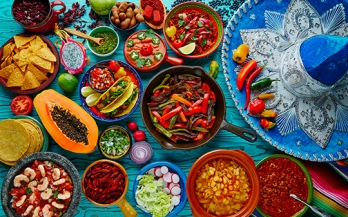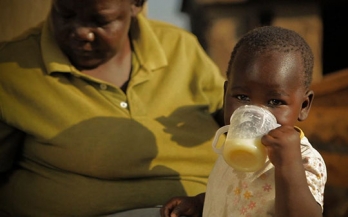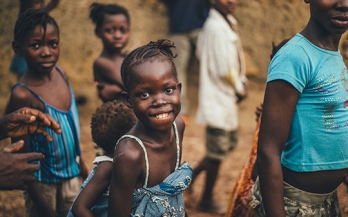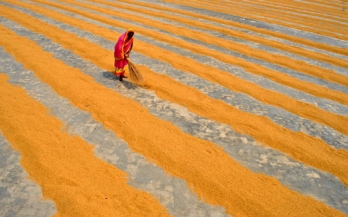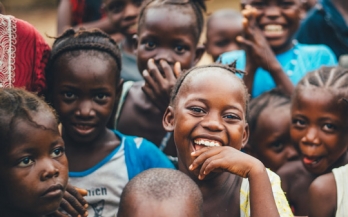- 30/06/2021
EatSafe evaluated the regulatory and policy landscape for food safety in Nigeria at the national and regional levels, which included an assessment of existing regulations and resulted in recommendations for strengthening implementation.
- 22/06/2021
Poor diet quality is a major cause of morbidity and mortality at all country income levels. Yet to date, low-cost, feasible metrics for population-level assessment and monitoring of diet quality are scarce. High-quality diets are safe, meet nutrient needs for healthy growth and development at all ages, and reduce risks of non-communicable disease.
- 14/06/2021
With Kenya weathering the third wave of COVID-19, the Global Alliance for Improved Nutrition (GAIN) has continued to develop ways to mitigate the impact of the pandemic on livelihoods and SMEs in Kenya through the Keeping Food Markets Working (KFMW) programme.
- 22/06/2021
The coronavirus (COVID-19) pandemic continues to disrupt life around the world, with a toll on human lives and economic activities. Its rapid global spread has affected millions of people already vulnerable to food insecurity and malnutrition due to the effects of conflict and other disasters.
- 06/06/2021
The COVID-19 pandemic is a multiplier of vulnerability, compounding threats to food security and nutrition (FSN) while exposing weaknesses in food systems. In response, the Global Alliance for Improved Nutrition (GAIN) developed the Keeping Food Markets Working (KFMW) programme to provide targeted support to help sustain core food systems.
- 21/04/2021
Food Systems are the people, places, and activities that bring us food. They make food available in diverse ways that influence and shape the choices we make about what to eat, when, and how. They are complicated and constantly changing – comprising a host of moving and interconnected pieces. They support many people’s livelihoods.
- 20/04/2021
High levels of food loss help drive low availability and affordability of nutrient-dense foods such as fresh fruit and vegetables - which, in turn, contribute to poor-quality diets and poor nutrition outcomes in many low- and middle-income countries. Much of this loss occurs at the post-harvest stage, in which women often play a large role, and gender relations shape decisions along agricultural value chains
- 19/04/2021
Adolescence is a time of rapid physical, cognitive, social, and emotional development that sets the foundation for health and provides an opportunity to improve life chances. Mozambique has a large and growing population of young people, but their health and social indicators are poor, especially for girls.
- 13/04/2021
EatSafe conducted a Story Sourcing activity, or the semi-formal process that uses journalistic techniques to gather stories directly from the audience of interest, to gather stories from traditional food market vendors in Birnin Kebbi, Nigeria.
- 13/04/2021
This infographic has been prepared by GAIN based on the blog Keeping food flowing within African food systems by busting policy myths penned by GAIN's Executive Director Lawrence Haddad commenting on the paper "Essential non-essentials": COVID-19 policy missteps in Nigeria rooted in persistent myths about African food supply chains.

